
AIMS Bioengineering
Scope & Guideline
Exploring the Intersection of Biology and Engineering
Introduction
Aims and Scopes
- Biocatalysis and Biomaterials:
Research on the utilization of biological catalysts and the development of new biomaterials for various applications, including construction (e.g., self-healing concrete) and medical devices. - Computational Modeling and Simulation:
Focus on computational approaches to model biological systems, disease dynamics, and treatment efficacy, enhancing predictive capabilities in healthcare and engineering. - Biomedical Engineering Innovations:
Exploration of cutting-edge technologies in biomedical engineering, including brain-computer interfaces, tissue engineering, and advanced imaging techniques. - Artificial Intelligence in Healthcare:
Integration of artificial intelligence and machine learning methodologies to improve diagnostics, treatment planning, and patient outcomes in various medical fields. - Environmental Biotechnology:
Research on the use of biotechnological solutions to address environmental challenges, including resource recovery, pollution treatment, and sustainable practices.
Trending and Emerging
- Artificial Intelligence and Machine Learning:
A significant increase in studies utilizing AI and machine learning methodologies, particularly for predictive modeling and diagnostics in healthcare, showcasing the transformative potential of these technologies. - Advanced Biomaterials and Regenerative Medicine:
Emerging research on novel biomaterials for tissue engineering and regenerative medicine, reflecting a growing interest in developing materials that enhance healing and integration within biological systems. - Sustainable Biotechnology Practices:
A trend towards sustainability in biotechnology, focusing on eco-friendly processes and materials, including biocatalysis and waste valorization, aligning with global environmental goals. - Neuroscience and Brain-Computer Interfaces:
Growing attention on neuroscience applications, particularly brain-computer interfaces, which leverage advanced signal processing techniques to improve patient outcomes in neurological disorders. - Epidemiological Modeling and Public Health:
An increasing focus on mathematical and computational models to address public health challenges, including infectious disease dynamics and healthcare strategies, particularly in the context of recent global pandemics.
Declining or Waning
- Traditional Microbial Applications:
Research on conventional microbial applications, such as fermentation processes for food production, has seen a decline, possibly due to the rise of more advanced biotechnological methods. - Basic Mechanistic Studies:
There is a decreasing emphasis on purely mechanistic studies without practical applications, as the journal increasingly favors research with direct implications for health and technology. - Single-Discipline Focus:
Papers focusing solely on a single discipline without interdisciplinary approaches are becoming less common, as the journal encourages integration across biology, engineering, and technology.
Similar Journals
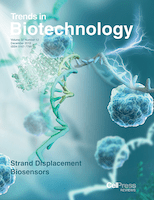
TRENDS IN BIOTECHNOLOGY
Leading the Charge in Bioengineering DiscoveriesTRENDS IN BIOTECHNOLOGY, published by CELL PRESS, stands as a premier journal since its inception in 1983, focusing on the dynamic and ever-evolving fields of bioengineering and biotechnology. With a notable impact factor and ranking in the top quartile (Q1) of its categories for 2023, this journal is recognized for its contribution to advancing scientific knowledge, boasting a Scopus rank of #5/311 in Biotechnology and #5/162 in Bioengineering, placing it in the 98th and 97th percentiles, respectively. Although it does not operate under an open access model, TRENDS IN BIOTECHNOLOGY ensures a rigorous peer-review process that provides a platform for high-quality research that influences both academic and industrial advancements. The journal's objectives encompass the dissemination of cutting-edge research findings, reviews, and insights that foster innovation in biotechnological applications, making it an invaluable resource for researchers, professionals, and students alike. With its broad scope across the intersection of biosciences and technology, TRENDS IN BIOTECHNOLOGY continues to lead discussions and developments that shape the future of the biotechnology landscape.
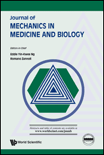
Journal of Mechanics in Medicine and Biology
Unveiling the Mechanics Behind Life's ComplexitiesThe Journal of Mechanics in Medicine and Biology, published by World Scientific Publishing Co Pte Ltd, serves as a critical platform for interdisciplinary research at the intersection of engineering and biomedical sciences. With an ISSN of 0219-5194 and E-ISSN of 1793-6810, this esteemed journal has been dedicated to exploring the mechanical principles that govern biological systems since its inception in 2008. Based in Singapore, it addresses a diverse range of topics, from biomaterials to biomechanics, contributing valuable insights into the field’s evolving landscape. Although currently positioned in Q4 of Biomedical Engineering according to the 2023 category quartiles, it is poised for growth and increased visibility within the scientific community, fostering innovation and collaboration among researchers, professionals, and students alike. The journal emphasizes the importance of cutting-edge research and its practical implications, making it a vital resource for those striving to enhance the future of medical technologies and biological understanding.

Bioengineering-Basel
Driving Excellence in Bioengineering ResearchBioengineering-Basel, an esteemed journal published by MDPI, stands at the forefront of innovation in the field of bioengineering since its inception in 2014. With an E-ISSN of 2306-5354, this fully Open Access journal based in Switzerland provides a platform for researchers and professionals to disseminate cutting-edge findings across various aspects of bioengineering, including biomaterials, tissue engineering, and biopharmaceuticals. The journal has been recognized with a Q3 ranking in the 2023 Bioengineering category, reflecting its commitment to quality and relevance. By facilitating widespread accessibility to academic knowledge, Bioengineering-Basel aims to foster collaboration and stimulate thought leadership within the global research community, making it an indispensable resource for students, scholars, and industry practitioners alike.
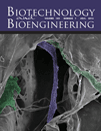
BIOTECHNOLOGY AND BIOENGINEERING
Pioneering Research in Applied Microbiology and BiotechnologyBIOTECHNOLOGY AND BIOENGINEERING, published by Wiley, is a leading journal in the domains of applied microbiology, biotechnology, and bioengineering. With an ISSN of 0006-3592 and E-ISSN of 1097-0290, this journal has established itself as an essential resource for researchers, professionals, and students aiming to advance their knowledge and stay updated on cutting-edge innovations and methodologies in biotechnology. The journal has a commendable impact factor, and it is ranked in the second quartile (Q2) across multiple categories for 2023. This positions it favorably among its peers, underscoring its significance in the scientific community; for example, it ranks 23rd out of 127 in the field of Applied Microbiology and Biotechnology. As a hub of critical research findings and technological advancements, BIOTECHNOLOGY AND BIOENGINEERING invites contributions that push the boundaries of biotechnological applications, fostering a deeper understanding and development of sustainable solutions to current global challenges.

CMES-COMPUTER MODELING IN ENGINEERING & SCIENCES
Transforming Complex Systems with Cutting-edge ResearchCMES-COMPUTER MODELING IN ENGINEERING & SCIENCES is a premier journal published by Tech Science Press, dedicated to advancing knowledge in the fields of computer science applications, modeling and simulation, and software engineering. With an impressive convergence of research from 2000 to 2024, this journal stands out as a vital resource for researchers, professionals, and students alike, fostering innovation and collaboration in computational methodologies. The journal currently holds a Q3 category ranking in multiple disciplines according to the latest metrics, including Scopus, which reflects its growing significance in the academic community. By providing a platform for high-quality research and open discourse, CMES aims to enhance the understanding of complex systems through effective modeling techniques and computational tools. Despite its current classification under open access, the journal remains a cornerstone for those looking to deepen their expertise in cutting-edge computational engineering and science.

Biofabrication
Transforming Ideas into Impactful Biofabrication Advances.Biofabrication, published by IOP Publishing Ltd, stands at the forefront of the interdisciplinary fields of biochemistry, bioengineering, biomaterials, biomedical engineering, biotechnology, and miscellaneous medicine. Since its inception in 2009, this prestigious journal has secured its position within the Q1 category across multiple disciplines as of 2023, reflecting its high impact and significant contribution to advancing research in these domains. With ranks such as #19 in biochemistry and #10 in biomaterials according to Scopus, it showcases groundbreaking studies and innovative methodologies that are crucial for the evolution of biofabrication technologies. Authored by leading researchers and professionals, the journal publishes articles that explore the synthesis, characterization, and application of biomaterials, providing valuable insights for both academic researchers and industry practitioners. The impact factor of the journal, combined with its rigorous peer-review process, guarantees high-quality content that pushes the boundaries of knowledge and technology. Researchers and students engaged in these dynamic fields will find Biofabrication an indispensable resource for staying abreast of critical developments and emerging trends.
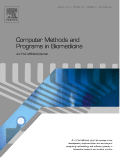
Computer Methods and Programs in Biomedicine
Bridging the Gap between Technology and Medicine for Better Outcomes.Computer Methods and Programs in Biomedicine, published by ELSEVIER IRELAND LTD, is a leading journal at the intersection of computer science and biomedical research. With an impressive impact factor evidenced by its Q1 rankings in multiple categories—Computer Science Applications, Health Informatics, and Software—this journal ranks highly among peer publications, showcasing its significance in advancing interdisciplinary research. Covering a wide array of topics since its inception in 1985, it is particularly crucial for those invested in the innovation of computational methods applied to the biomedical field. The journal has established a strong reputation, with Scopus rankings placing it in the top percentiles across its relevant sectors, including the 14th position out of 138 in Health Informatics. Researchers, practitioners, and students looking to explore current trends, methodologies, and advancements in biomedical applications of computer science will find this journal an invaluable resource.

Biomolecules and Biomedicine
Fostering Collaboration in Molecular Biology and MedicineBiomolecules and Biomedicine is a pioneering open-access journal dedicated to advancing the fields of molecular biology and biomedical sciences, published by the Association of Basic Medical Science Federation Bosnia & Herzegovina in Sarajevo. With the ISSN 2831-0896 and the E-ISSN 2831-090X, this journal aims to facilitate the dissemination of high-quality research from 2023 onwards, inviting submissions that provide innovative insights and findings across various facets of medicine and biological sciences. Positioned within the General Medicine and Biochemistry, Genetics and Molecular Biology categories, it currently holds rankings of 332 out of 636 and 173 out of 221 respectively, highlighting its emerging influence in these fields. As an open-access journal, it ensures that all published research is freely accessible to a global audience, fostering collaboration and knowledge exchange among researchers, professionals, and students alike. With a commitment to enhancing scientific discourse and promoting cutting-edge research, Biomolecules and Biomedicine is poised to become a vital resource for those dedicated to unraveling the complexities of biomolecules and their roles in health and disease.
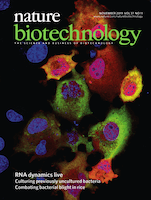
NATURE BIOTECHNOLOGY
Shaping Tomorrow with Groundbreaking DiscoveriesNATURE BIOTECHNOLOGY, an esteemed journal published by NATURE PORTFOLIO, stands at the forefront of innovation in biotechnological research since its inception in 1989. With an impressive impact factor reflecting its preeminent status—ranked in the Q1 quartile across multiple categories including Applied Microbiology, Bioengineering, Biomedical Engineering, Biotechnology, and Molecular Medicine—this journal is a pivotal resource for researchers and professionals aiming to advance the boundaries of biotechnology. The journal is highly regarded, boasting Scopus rankings in the 99th percentile within its categories. NATURE BIOTECHNOLOGY provides a platform for disseminating cutting-edge findings, with open access options that enhance the visibility and accessibility of its content to a global audience. The scope of the journal encapsulates a diverse range of topics from genetic engineering to pharmaceutical developments, ensuring comprehensive coverage of emerging biotechnological advances. As the field continues to evolve, NATURE BIOTECHNOLOGY remains committed to publishing groundbreaking research that shapes the future of science and industry.

ANNALS OF BIOMEDICAL ENGINEERING
Exploring the future of medical technology.ANNALS OF BIOMEDICAL ENGINEERING is a premier journal in the field of biomedical engineering, published by Springer. Established in 1972, this journal has become a vital resource for researchers, professionals, and students engaged in the rapidly evolving domain of biomedical technology. With a commendable impact factor and ranked in the 76th percentile among its peers as per Scopus, it exemplifies excellence in disseminating critical research findings. The journal covers a broad scope of topics related to the integration of engineering principles with medical and biological sciences, facilitating innovations that enhance healthcare outcomes. Although open access is not offered in this journal, it remains an essential platform for scholarly communication, contributing to the continuous advancement of knowledge in biomedical engineering. ANNALS OF BIOMEDICAL ENGINEERING is not only a bridge for academics to share groundbreaking research but also an influential guide for practical applications in medicine and health technologies, making it a fundamental publication for its readership.